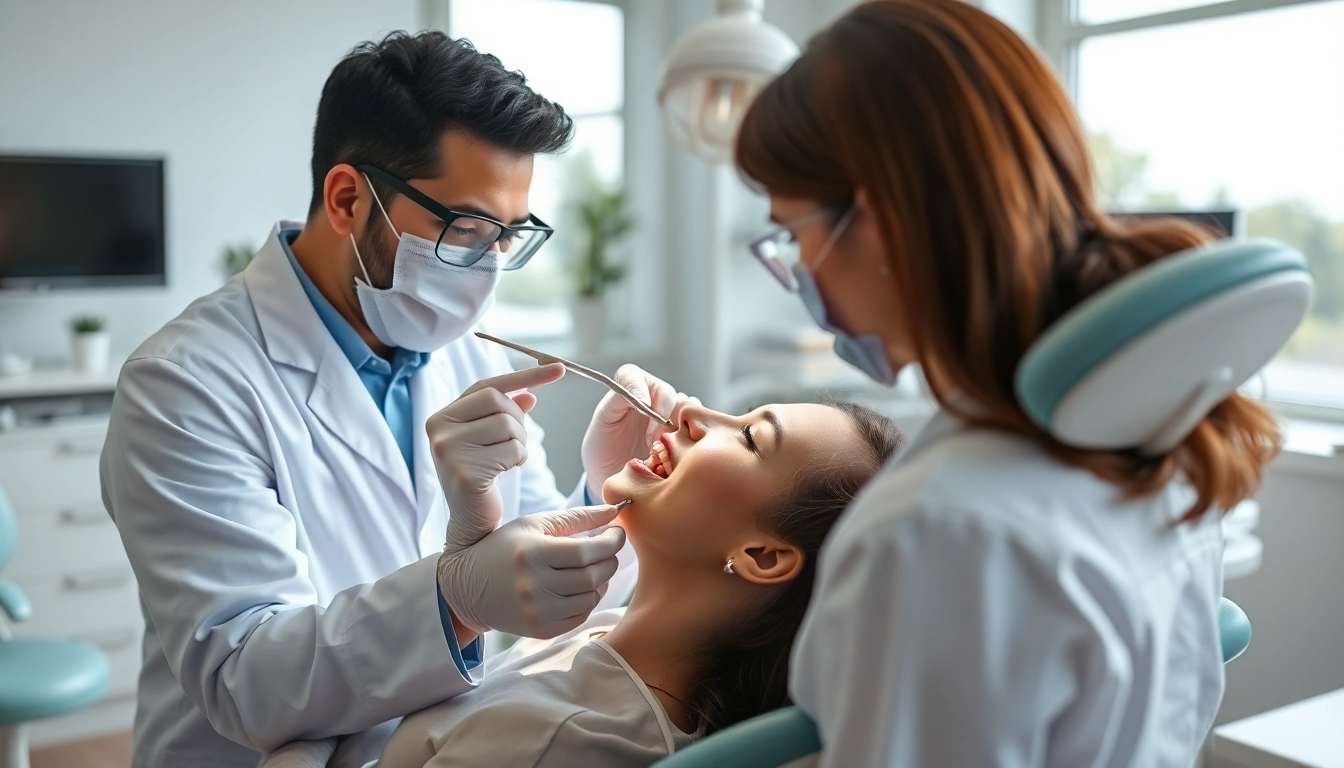
Understanding the Importance of Regular Checkups
Regular dental checkups are essential for maintaining optimal oral health and preventing dental issues before they become severe. A dental checkup not only allows for the thorough examination of your teeth and gums but also serves as a critical opportunity to assess your overall health. When you prioritize your checkups, you are investing in your future well-being. This comprehensive guide explores the many facets of dental checkups, ensuring that you understand the importance of these visits and how to maximize their value.
What Are Dental Checkups?
A dental checkup is a routine examination conducted by a dental professional to evaluate your oral health. During this visit, the dentist will typically perform a visual exam, take X-rays if necessary, and assess your gums and any existing dental work. The primary goal of a dental checkup is to identify potential problems early, such as cavities, gum disease, or other oral health issues that may require treatment. Most dental professionals recommend adults undergo a checkup at least once every six months, although individuals with specific health issues may need more frequent visits.
Benefits of Regular Checkups
Regular dental checkups offer numerous advantages, including:
- Early Detection of Problems: Routine checkups allow dental professionals to catch issues in their infancy, preventing more costly and extensive treatments later on.
- Cleaning: Professional cleaning removes plaque and tartar buildup that regular brushing cannot eliminate, significantly reducing the risk of cavities and gum disease.
- Educational Opportunities: Dentists provide valuable advice on improving home care techniques, dietary choices, and lifestyle habits that affect dental health.
- Overall Health Assessment: Oral health is linked to overall health; therefore, regular evaluations can help identify issues such as diabetes, heart disease, and oral cancer.
What to Expect During Your Visit
During a typical dental checkup, you can expect a series of steps, including:
- Medical History Review: Your dentist will assess any changes in your health history, medications, and concerns you may have.
- Visual Examination: The dentist will visually inspect your mouth, teeth, and gums for signs of problems.
- X-Rays (if necessary): Depending on the condition of your teeth, X-rays may be taken to identify issues not visible during an examination.
- Cleaning: A dental hygienist will perform a cleaning that often includes scaling, polishing, and flossing your teeth.
- Discussion: Your dentist will discuss their findings with you, provide recommendations, and address any questions or concerns you may have.
Preparing for Your Dental Checkups
Scheduling Your Appointment
Proper scheduling is crucial in maintaining your dental health. Ideally, you should set your dental checkup appointments six months in advance, although scheduling earlier or later may be necessary depending on your circumstances. Regularity is key—make a note in your calendar to remind yourself when your next appointment is due. Many dental practices also send reminders, so be sure to provide your contact details when you book your appointment.
What Information to Share with Your Dentist
Open communication is vital during your dental checkup. Be prepared to share essential information, including:
- Your medical history, including any new medications or treatments.
- Any dental concerns or symptoms, such as sensitivity, pain, or changes in your oral health.
- Your dental hygiene routine and frequency of brushing and flossing.
Managing Anxiety and Fear
It’s natural to feel anxious about dental appointments. Here are a few strategies to help manage that anxiety:
- Communicate Your Fears: Let the dentist or hygienist know about your fears; they can take steps to make you more comfortable.
- Practice Relaxation Techniques: Breathing exercises or meditation can help calm your nerves before your appointment.
- Bring a Friend: Having a trusted friend or family member accompany you can provide support and comfort during your visit.
Common Procedures During Checkups
Examinations and Cleanings
Examinations and cleanings form the backbone of every dental checkup. Dentists utilize a variety of tools and techniques to ensure thorough cleaning and examinations. The hygienist will use specialized instruments to remove plaque and tartar from your teeth, which can lead to cavities and gum disease if left unaddressed.
X-Rays: When and Why?
X-rays are a crucial diagnostic tool in dentistry, helping to identify issues not visible during a regular examination. X-rays can reveal hidden cavities, bone loss, and other structural problems that might require attention. Dentists typically recommend X-rays every 1-2 years, depending on your dental health and risk factors.
Identifying Potential Issues Early
Regular checkups empower dentists to identify potential issues before they escalate into severe problems. Conditions such as gingivitis, cavities, and even oral cancer can be caught early through routine examinations, facilitating prompt treatment and better health outcomes.
Aftercare Following Your Checkups
Understanding Your Dentist’s Recommendations
After your checkup, your dentist will provide recommendations tailored to your oral health needs. These could include adjustments in your brushing and flossing routine, dietary changes, or suggestions for dental products that may benefit your specific situation. It’s important to follow their guidance to maintain your dental health.
Home Care Tips for Optimal Dental Health
Maintaining good dental hygiene at home is crucial to complement the care you receive during checkups. Here are some effective tips to enhance your home dental care routine:
- Brush your teeth at least twice a day with fluoride toothpaste.
- Floss daily to remove plaque and food particles from between your teeth.
- Avoid sugary snacks and beverages to minimize cavity risk.
- Drink plenty of water, particularly fluoridated water, to help wash away food particles and prevent tooth decay.
- Use mouthwash to help reduce plaque buildup and freshen breath.
Follow-up Appointments and Their Importance
In some cases, dentists may identify issues that require additional treatment or monitoring. Following through with any recommended follow-up appointments is essential to ensure any emerging problems are addressed promptly, thereby enhancing your overall dental health.
Maximizing the Value of Your Checkups
Tracking Your Dental Health Progress
Keeping track of your dental health over time can provide valuable insights into how well you are maintaining your oral hygiene. Many modern dental practices offer patient portals where you can access your treatment history, X-rays, and notes from previous visits. This information can help you and your dentist make informed decisions during your checkups.
Communicating Effectively with Your Dentist
Effective communication with your dentist is key to making the most of your checkups. Don’t hesitate to ask questions about your oral health, express concerns, and discuss any changes you’ve noticed since your last visit. A candid dialogue can help ensure that your dental care aligns with your health goals.
Cost Considerations and Insurance Coverage
Understanding the costs associated with dental checkups and the extent of your insurance coverage is vital. Most dental insurance plans cover preventive care, including regular checkups. However, familiarize yourself with your policy’s details, including copays, deductibles, and limitations on types of procedures covered.
In conclusion, regular dental checkups are an integral part of maintaining your oral health and overall well-being. By prioritizing these visits, preparing adequately, engaging in open communication, and following through on your dentist’s recommendations, you can safeguard your smile for years to come. Embrace the proactive approach to your dental health and make checkups an essential part of your healthcare routine.







